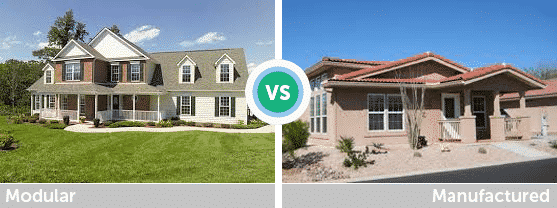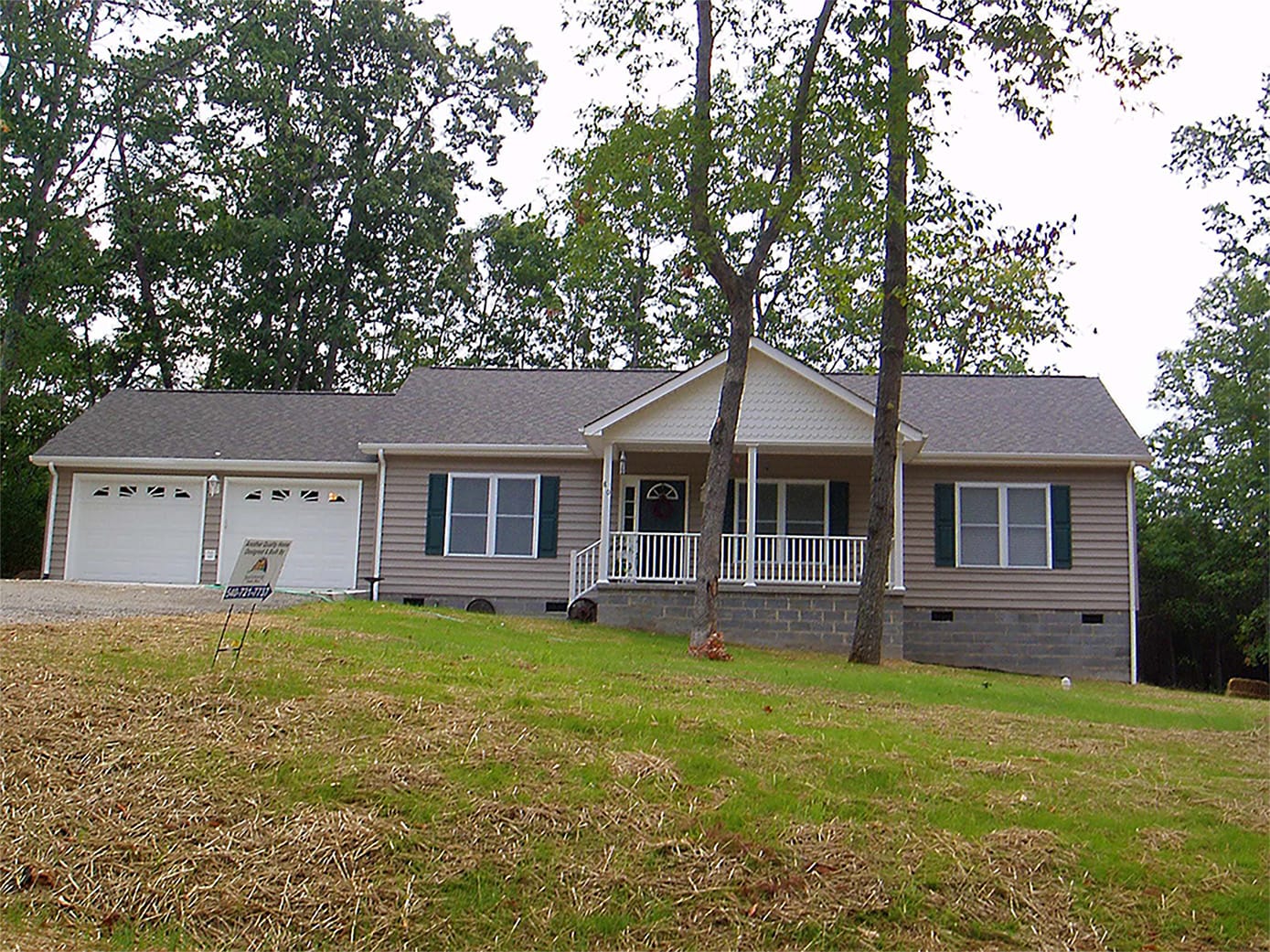Modular VS Manufactured Homes – Can you tell the difference?

We are often asked what is the difference between modular homes and manufactured homes. Some even use the terms interchangeably as though they are the same product. While sometimes by appearance, they can look very similar, there are significant differences between modular and manufactured homes.
Manufactured homes are constructed according to a Housing and Urban Development (HUD) code created especially for the manufactured home industry. The building codes are enforced by both HUD and state regulators. The HUD code for manufactured homes took effect on June 15th, 1976. Homes built prior to June 15th, 1976 are often referred to a “mobile homes”, and those built after, in accordance with the HUD code, are referred to as “manufactured homes”. Each section or “floor” of a manufactured home (one section for a single wide, two sections for a doublewide, etc.), is built to the HUD code. A label is affixed to each section of the home as certification that is was built to this code. Sections, or floors of a manufactured home are generally no more than 16′ wide to accommodate transportation from the factory to the new owner’s site. Once on site they are generally placed on a permanent foundation and the wheels and axels removed. However the frame or “chassis” that the home was built on in the factory remains in place, and is part of the permanent structure. Manufactured homes come with many different design concepts, and this type of housing is considered by many to the most affordable housing option in most markets.
Modular homes are built in much the same way as manufactured homes. That is, they are constructed in a factory and transported in sections to the homeowner’s site. The biggest difference is the building codes that apply to modular construction. The code that most states have adopted for modular construction is the International Building code, or IBC. This is the building code that most traditional site built homes are constructed to. Another difference is that a good portion of modular homes are not built on a chassis, so they are transported on a flatbed truck and then the sections are lifted by crane onto the foundation. However there are still a good portion of modular homes that are built to the IBC, but stay on their frame or “chassis”. The advantage of transporting on a frame is that no crane is needed to lift the sections once the home gets on site, which obviously reduces the cost of the project. Like manufactured, modular homes have many different design features such as, higher ceilings, steeper roof pitches, covered entries, etc. Many often have garages attached after the home is installed on site. Another major difference is the cost. While modular home are still generally less expensive than traditional site built homes because they are built in a factory in an “assembly line” fashion, they tend to be a bit more expensive than manufactured homes. This is due to the fact that the IBC code has more expensive requirements than the HUD code.
When it comes to financing your manufactured or modular home, you will notice a difference as well. Although the cost for the modular product is a bit more than manufactured, some of the additional cost could be recovered in the finance transaction. Since modulars are treated more as traditional site built housing, a lender will typically offer slightly better finance terms on a modular home than manufactured. It can also have a profound effect on appraising the home since value on an appraisal is established by similar home sales in that market, appraisers rely only on other manufactured home sales to support their value. With modular however, they can use any similar site built home as a comparable sale, which means more sales data to support higher values.
At Countryplace Mortgage, we offer construction loans on both modular and manufactured home. Modulars can either be built on or off frame.


We Are CountryPlace Mortgage
CountryPlace Mortgage is the nation's premier lender for manufactured, modular, and mobile homes. We offer a one-time close construction loan for new homes. We make financing or refinancing your home simple and easy. If you own a manufactured or mobile home, or are thinking about purchasing a new or existing home, Countryplace Mortgage should be your lender of choice. We can finance your manufactured or mobile home whether it's tied to the land or in a mobile home park.
Founded in 1995, Countryplace Mortgage is a direct lender with both Fannie Mae and FHA. That means that we can offer you the most competitive rates, with down payments as low as 3.5%. When financing a manufactured, mobile, or modular home, it is important that you are working with a mortgage professional that understands these unique properties. Whether it's a chattel (home-only), land/home package, or construction loan we have the expertise to help you navigate today's challenging mortgage process. Many of our Loan Officers have several years experience originating manufactured and mobile home loans.
 COVID Update
COVID Update